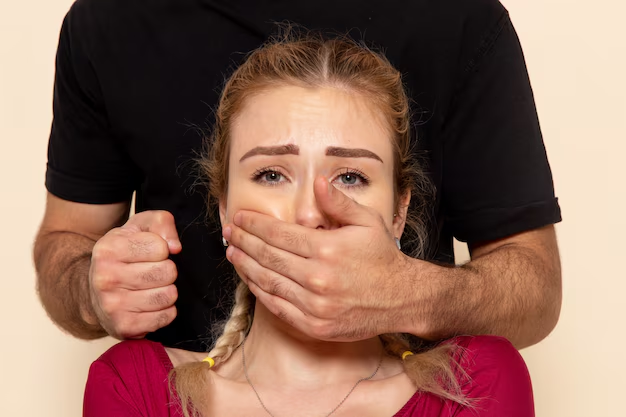Every year, thousands of individuals in Texas suffer from domestic violence. The cycle of abuse can feel impossible to break, but there are legal options that extend beyond restraining orders. Victims have rights, and taking legal action can lead to long-term safety and independence.
At Daniel Ogbeide Law, we provide legal guidance for domestic violence victims. Our experienced domestic violence attorneys in Houston work to protect the rights and well-being of those suffering from abuse. We assist with legal solutions that go beyond protection orders, such as divorce proceedings, custody modifications, and criminal charges against abusers.
If you or a loved one is facing domestic violence, knowing your legal options is essential. This article covers key legal steps victims can take to secure safety, regain control, and build a future free from abuse.
Filing Criminal Charges Against an Abuser
A restraining order may provide immediate protection, but holding an abuser legally accountable is critical for long-term safety. In Texas, domestic violence is a criminal offense, and victims can report incidents to law enforcement. Prosecutors can pursue charges even if a victim later decides not to press charges.
Key criminal charges related to domestic violence include:
- Assault (Penal Code Sec. 22.01)– Physically harming or threatening to harm another person
- Aggravated Assault (Penal Code Sec. 22.02)– Assault involving serious bodily injury or use of a deadly weapon
- Continuous Violence Against the Family (Penal Code Sec. 25.11)– Two or more domestic assaults within 12 months
Victims should document evidence such as medical reports, photos of injuries, threatening messages, and witness testimonies. A domestic violence lawyer in Houston, TX, can assist with legal proceedings to ensure victims’ rights are protected.
Seeking a Divorce from an Abusive Spouse
Ending a marriage is often the best legal solution for long-term safety. Texas law allows for fault-based divorce, meaning victims can cite domestic violence as grounds for dissolution. A fault-based divorce can impact property division and spousal support decisions.
Key considerations for divorce in domestic violence cases:
- Texas has a 60-day waiting period for divorce, but emergency court orders can provide immediate protection.
- Victims may qualify for exclusive use of the family home while the divorce is pending.
- Courts may restrict an abuser’s access to children during custody decisions.
- A domestic violence attorney in Houston can handle all aspects of the divorce, ensuring that victims receive fair treatment and protection under the law.
Modifying Child Custody and Visitation Orders
Protecting children from exposure to domestic violence is a priority in Texas family courts. If an abuser has access to shared children, victims can request a modification of custody or visitation rights.
Possible legal actions include:
- Requesting sole managing conservatorship (primary custody)
- Petitioning for supervised visitation or revocation of visitation rights
- Submitting evidence of abuse to justify modifications
Texas courts always prioritize the child’s best interests. If domestic violence is a factor, judges may limit an abuser’s access to a child or order mandatory parenting classes before visitation is granted.
Obtaining Emergency Protective Orders (EPOs)
While a standard restraining order requires a hearing, an Emergency Protective Order (EPO) provides immediate legal protection. Law enforcement or a judge can issue an EPO after an arrest for domestic violence.
An EPO can:
- Prohibit an abuser from contacting or coming near the victim
- Remove an abuser from a shared home
- Restrict firearm possession
EPOs typically last between 31 and 91 days. A domestic violence lawyer in Houston, TX, can help victims file for longer-term protective orders as needed.
Financial Support and Compensation for Victims

Leaving an abusive relationship often comes with financial challenges. Texas offers resources to help victims regain financial stability, including:
- Spousal Support– Courts may order an abuser to provide financial support after divorce.
- Victim’s Compensation Program– The Texas Attorney General’s office offers compensation for medical bills, lost wages, and relocation expenses.
- Child Support– A domestic violence attorney in Houston can help secure child support payments from the abusive parent.
Financial security is a key factor in breaking the cycle of abuse, and legal action can ensure victims receive the support they deserve.
Legal Help Is Available – Take the First Step Toward Safety
What’s stopping you from taking legal action? Many victims feel trapped, but the law is on their side. Seeking legal assistance can mean the difference between staying in an unsafe situation and gaining control over your future.
At Daniel Ogbeide Law, we help domestic violence victims in Houston take decisive legal action. Whether you need assistance with divorce, child custody, or filing criminal charges, we provide the legal representation necessary to protect you and your family.
If you need help, don’t wait. Contact us at 832-321-7005 to speak with an experienced domestic violence attorney in Houston. Your safety and future are our priority.

